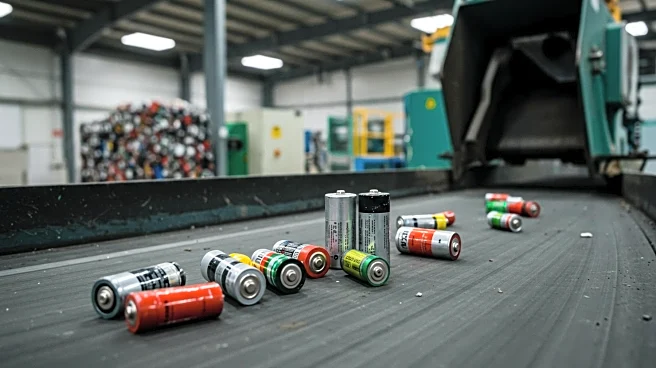What's Happening?
Research from Edith Cowan University (ECU) emphasizes the importance of recycling lithium-ion batteries to reduce environmental impact and secure access to lithium, a critical mineral for electric vehicles and renewable energy storage. The global lithium-ion battery market is projected to grow significantly, with lithium consumption expected to rise sharply. Despite this, a large portion of lithium remains unused in discarded batteries. Recycling these batteries can recover valuable materials like lithium, nickel, and cobalt, offering environmental benefits compared to traditional mining.
Why It's Important?
Recycling lithium-ion batteries presents a significant opportunity to support a circular economy and enhance sustainability in the energy sector. By recovering materials from end-of-life batteries, the process reduces the ecological footprint, carbon emissions, and resource consumption associated with mining. This approach not only addresses environmental concerns but also offers economic benefits, potentially generating substantial revenue for the recycling industry. As demand for lithium continues to grow, recycling provides a viable solution to meet future needs while minimizing environmental impact.
What's Next?
The recycling industry is poised for growth, with potential revenue estimates ranging from $603 million to $3.1 billion annually. However, challenges remain, including the need for policy development and infrastructure investment to support battery recycling. As the chemical composition of batteries evolves, recycling processes must adapt to ensure efficiency and effectiveness. Australian companies are exploring innovative approaches to create a sustainable circular economy for lithium-ion batteries.








